Though during the summer of 2020 only around half of Americans said they’d were likely or certain to get vaccinated against the virus — which has killed over 440,000 of people in the US — that number has grown to up to 73%, reports The New York Times. As more people get vaccinated, public trust in the vaccines is growing.
Many of us are still waiting to make our appointments for the first dose, though, and are wondering what it’ll be like to actually get vaccinated. Where will we go? What will it feel like? Will the side effects be bad?
The Centers for Disease Control and Prevention has released information that can help answer some of these questions — but it’s even better to hear about what getting vaccinated is like from people who have actually received their first (and in some cases, second) dose. Here, six women share their experiences, from making an appointment to dealing with the after-effects.
These interviews have been condensed for clarity and length.
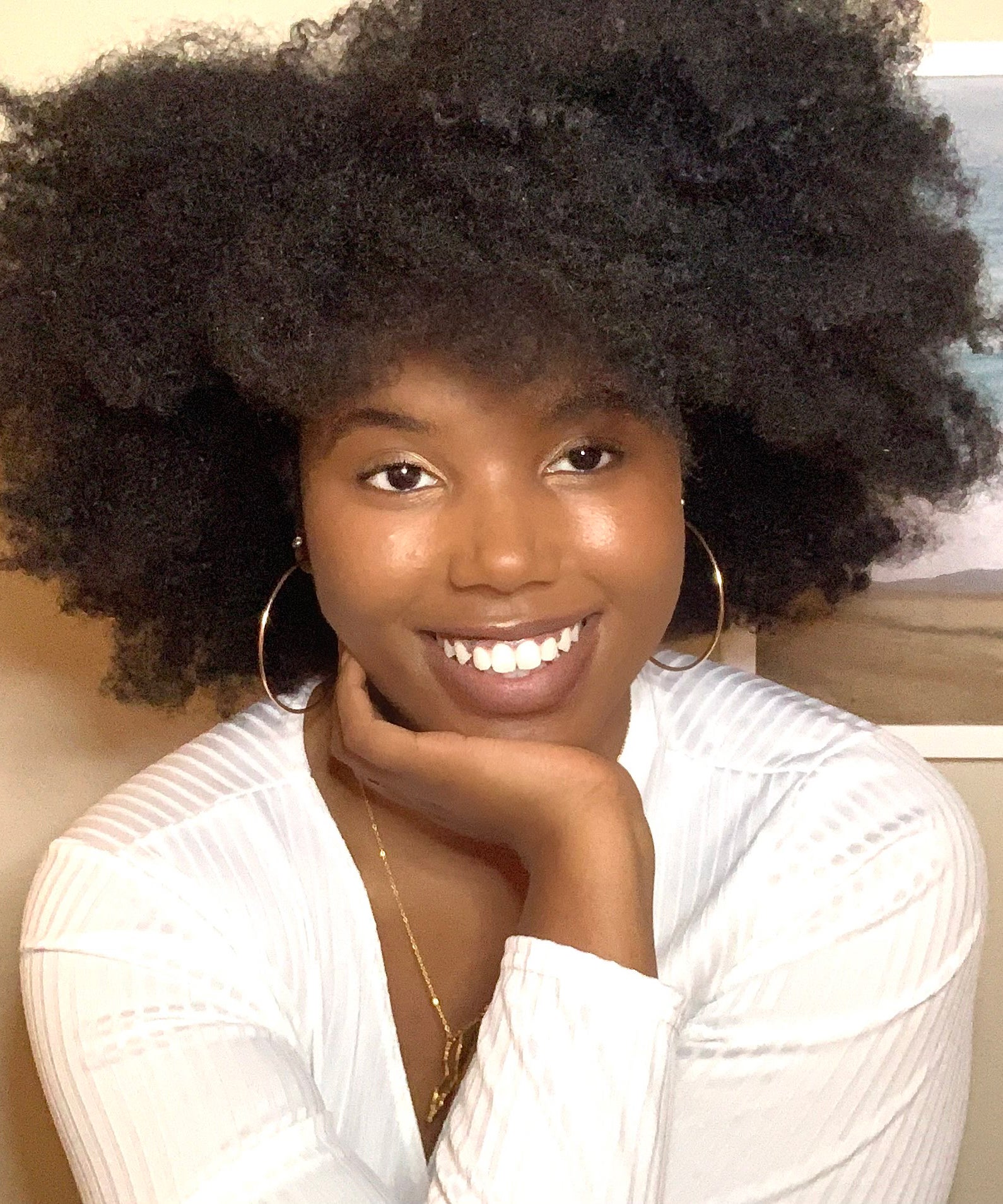
28 years old
New Orleans, LA
Refinery29: When did you hear you’d be able to receive the COVID vaccine?
Gabrielle A. Perry, MPH: “On 12th January, I got an email alerting me — and everyone from the New Orleans team at work — about eligibility. I was surprised because I am so young, so I called the hotline to get more information. The worker was incredibly kind, explained that I was, indeed, eligible, and she scheduled me for the very next week.
“I was excited to begin to eliminate that extra layer of fear I have been living with for the last year. I also felt nervous about potential common, documented side effects such as body chills, fever, nausea, diarrhoea, arm pain, etc.”
What was the process of receiving it like?
“A hospital in my city created a separate ‘vaccine clinic’ there, and a lovely, hilarious nurse administered my vaccine for me. I actually videotaped the entire experience for transparency and posted it on all of my social media accounts. The first thing I said as soon as the nurse said “all done” was that I didn’t even feel the needle. I had been told to expect a possible burning sensation, but that never happened to me.
“The arm soreness did happen on day two, but only when I moved my arm a certain way. The COVID-19 vaccine was nothing compared to the influenza vaccine. By day three, the soreness already started to dull. My next dose is not until February 8. I have been told by a few people the side effects are minimal for the second dose, if they appear at all. For that, I am relieved.”
Is there anything you want our readers to take away from your experience?
“I want people to ask questions of the information they are digesting around this vaccine. Transparency is key. It’s not a coincidence that people who are spreading misinformation about the various COVID-19 vaccines are doing so via secondhand information or are often unwilling to put their name and credentials behind their assertions. A major motivation behind me videotaping my experience and doing a live Q&A afterwards was to offer people a chance to ask questions about the process.
“I got the chance to speak with Dr. Kizzmekia Corbett recently, who we as a society owe a great debt to for the creation of this vaccine. One thing she helped solidify for me is that it is not just up to those with huge online platforms or those with fancy degrees. Each of us is responsible for each other. Just like achieving herd immunity will take a concerted effort from all of us, dispelling pseudoscience and educating the community will take all of us.”Photo: Courtesy of Gabrielle Perry.
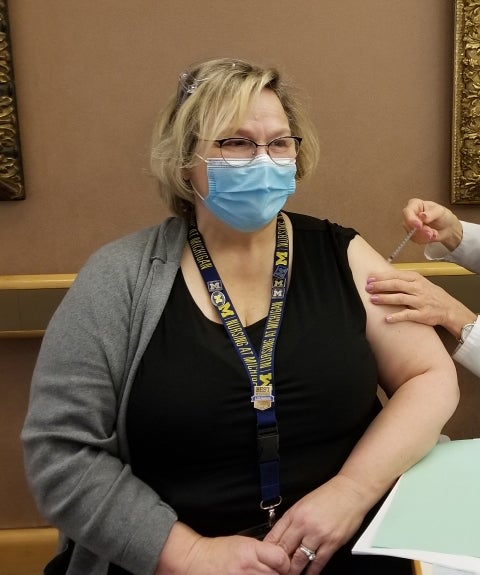
56 years old
Ann Arbor, MI
Refinery29: When did you hear you’d be able to receive the COVID vaccine?
Crystal Copeland-Lobbestael, RN: “I watched the news after the vaccine got emergency approval from the FDA, and saw the semi trucks carrying the Pfizer vaccine so it could finally be distributed. I thought, ‘Oh my god, we’re moving forward.’ On December 14, I received my email to register for my vaccine. I’d be among the first at the university to get it, and I was so humbled. But I also felt a little guilty. Like there were so many people who needed this more than I do. But when I told my boss, she said, ‘You get that vaccine, Crystal!’ So I did.
What was the process of receiving it like?
“I got the Pfizer vaccine on 15th December. It wasn’t until I sat in the chair and the nurse was prepping to give me my shot that it hit me that this was a huge moment. Almost historic. I got so teary and choked up. And I’m not a big crier! It was at that moment I realised that it’s not long before I’ll be able to see my grandchildren — I had a grandbaby born this year, and I’ve only seen them three times. It’s not far off that we’ll all have a little more safety. Not to mention, this pandemic, for many, has been extremely lonely. I thought about all that, and I finally felt that we were all going to come out of this.
“And I didn’t have any symptoms. My arm didn’t hurt. No side effects. I didn’t even feel it going in. For a minute, I thought, did they even give me anything!?
“After the shot, I felt like there should have been balloons falling from the ceiling. But it was very calm and organised. They had me wait 15 minutes after to monitor me for any effects. And I was so overcome with emotion. I got my second shot [in early January]. I was a little achy, but overall it wasn’t too bad.”
Is there anything you want our readers to take away from your experience?
“It’s all about sharing factual information about the vaccine. I have seven children and they’re adults, and I have been big on telling them everything I can about the vaccine. We do the same for our staff. We want people to know all about it. That it’s mRNA, and how that works. What’s in it — mRNA, fats, sugars, and salts. I also think it’s helpful when people see that we in medicine are getting it. And I’m encouraged and proud by how many people at my hospital are getting it.”
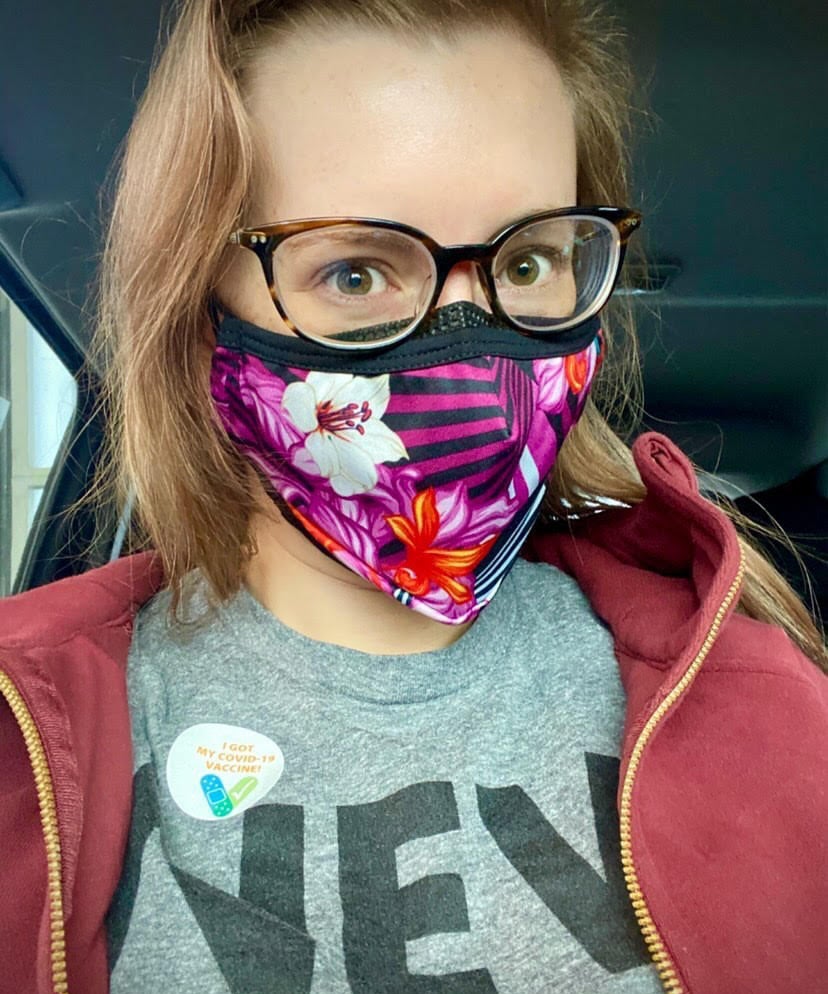
31 years old
Jersey City, NJ
Refinery29: When did you hear you’d be able to receive the vaccine, and what put you in a group that can receive it?
Christina Noonan: “I read about Governor Phil Murphy’s decision to increase eligibility for the vaccine, and started looking up more information about who all was included in that expansion from my living room. Because I have multiple medical conditions, I realised I was eligible for the vaccine in my state because I’m in ‘group 1C.’”
What was the process of receiving it like?
“I officially got the Moderna shot on US Inauguration Day. I was a bit sad to have missed much of the ceremony — but it was for a good reason. I was given a specific time I needed to arrive at the vaccination location after registering. We had to arrive by car. Since I don’t have one, a friend of mine who also qualified for the vaccine (who I know takes the pandemic seriously) offered to drive me. We scheduled our appointments together, and wore KN95 masks with the windows down just to be safe. When we got there, police ushered us into a long line of cars. After 30 minutes or so, we were directed into a big garage full of healthcare providers. They came up to our windows and asked for our IDs and registration, checked our names against a database and then came over with the shots.
“It felt just like any other flu shot. For the first 11 or so hours, my arm was sore. About 20 hours in, I experienced some flu-like symptoms, including body aches, a runny nose, and sneezing, which were gone around the 48-hour mark. It was certainly not as bad as a full-blown flu.
“I made my second appointment the following day. I’m crossing my fingers that everything goes smoothly, but so far, I’ve been really impressed with the organisation and execution of this distribution effort by my county.”
Is there anything you’d want our readers to take away from your experience?
“As for the the shot itself, I made my peace with the fact that there’s always a little bit of fear with something we don’t know everything about. But I thought about the almost-certain risks associated with COVID-19, and decided that for me, it was worth it — for my own health, peace of mind, and for my community.”Photo: Courtesy of Gabrielle Perry.
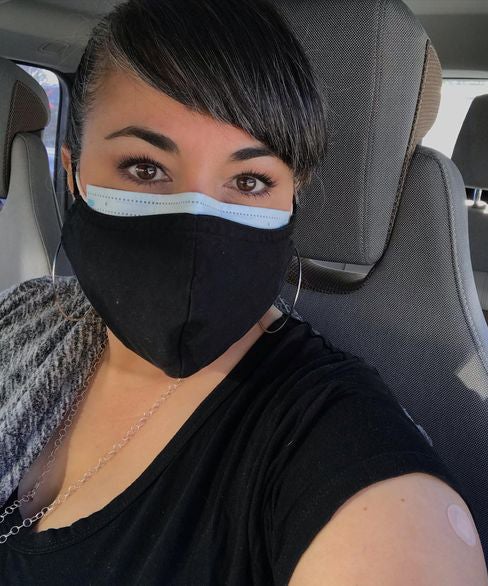
42 years old
Greater Los Angeles area, CA
Refinery29: When did you hear you’d be able to receive the vaccine?
Katayune Kaeni, PsyD: “I was working from home when heard from a colleague that, due to our jobs, we’d be in the first tier. I was a little apprehensive at first. I did not want to be in the first wave of vaccinations, honestly, because I wanted to hear more about side effects before getting one myself. But then, as the numbers of people dying [from COVID-19] kept increasing and the hospital’s availability kept decreasing, it pushed me in the direction of wanting the vaccine. After hearing from many people about their response and reactions, and learning more about how it works, it felt safest for me to move forward. And as a psychologist who works with pregnant and postpartum people, having the vaccine will help me stay safe, keep my family safe, and be one step closer to being able to support my clients in person.”
What was the process of receiving it like?
“I hardly felt the shot at all. On day two, I did experience mild pain at and near the injection site that was similar or even less painful than some other vaccines I’ve had, like the flu shot. That lasted for a couple of days. One week post-shot, I’m having a delayed onset response at the injection site. There’s been some itching and swelling around the area, and there’s a red splotch about the size of a lime. It feels warm. It’s still mild, and I just used some hydrocortisone for the itching. It’s not much of a bother.
I haven’t had my second dose, but I should receive it four weeks after getting the first, barring any shortage of vaccines.”
Is there anything you’d want our readers to take away from your experience?
“It’s good to be cautious, read up, and get the information from reputable sources. As a psychologist meeting with people virtually for psychotherapy, I hear how devastating COVID-19 is for so many. And it’s not just physical symptoms; it can truly cause a lot of stress. I hope there are enough of us who get vaccinated in order to be able to slow this down and stop the spread of the virus so we can move on to our ‘new normal.’”
Photo: Courtesy of Kat Kaeni.
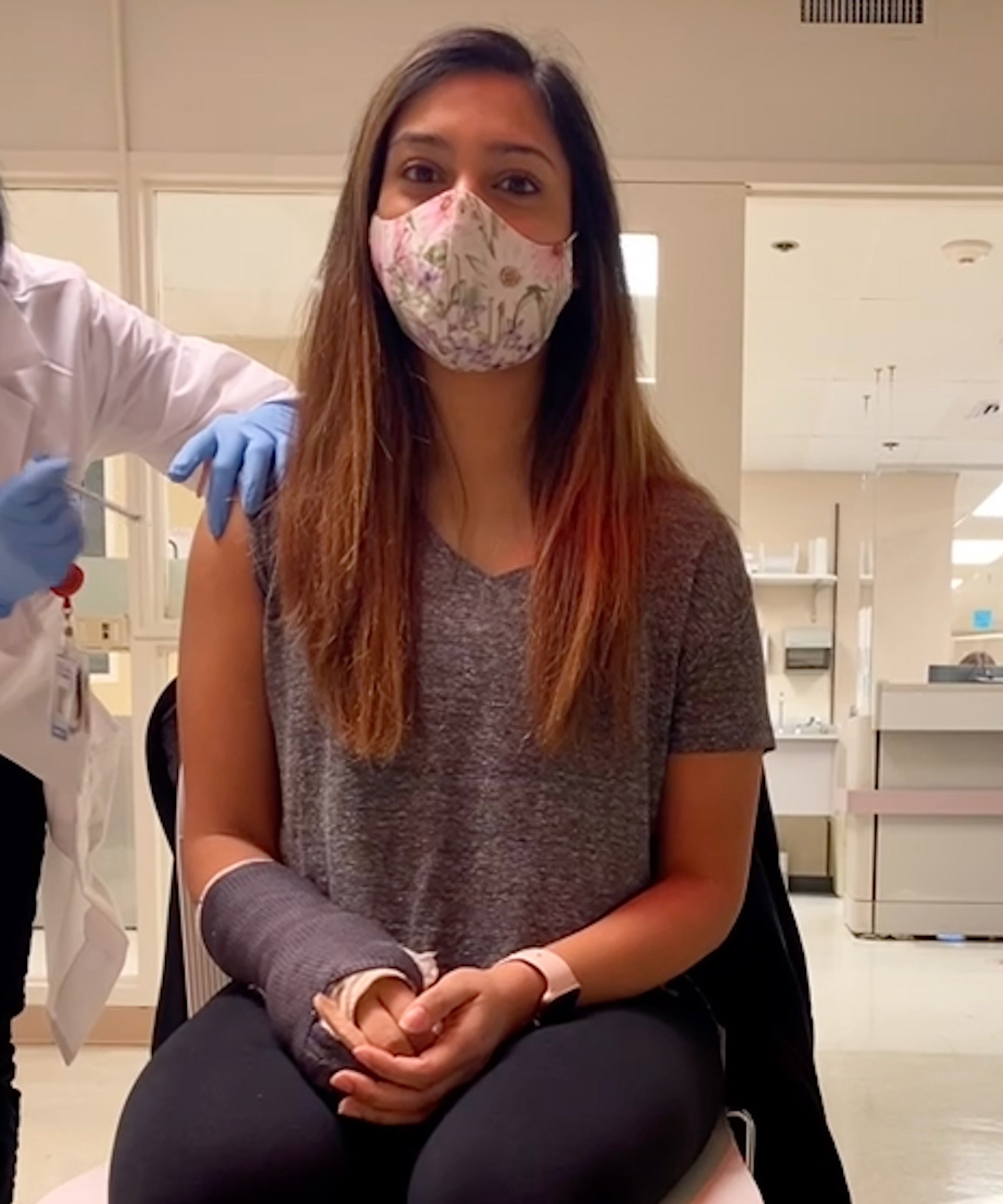
27 years old
Chicago, IL
Refinery29: When did you hear you’d be able to receive the COVID vaccine?
Mayuri Parmar, RN: “The second to last week of December, my work sent me a notice saying I could schedule my appointment. I knew I wanted to sign up for a shot as soon as possible, because I’m ready for things to be more normal than they are now.
“They said I’d be getting the Pfizer shot, but I would have taken whichever one they offered. Seeing how much my patients have suffered from COVID, and knowing that this has the potential to stop the spread made me want to take it even more. One of the hardest things throughout the pandemic has been that many of our patients can’t have family members visit them. That’s so tough to see, but hopefully visits can start up again once more people have the vaccine.”
What was the process of receiving it like?
“I was a little apprehensive before I got it, but overall mostly excited. Not knowing the long-term effects was a little daunting, but as a health care worker, I’ve had several vaccines, and I’ve never had a reaction. So, I trust the science and trust that if the FDA gave it approval, it’s safe. I got there a little early, checked in, sat down, and got my vaccine in my right upper arm from another nurse at my hospital. It felt like any shot I’ve gotten before. Like the flu jab. My arm was a little sore for one or two days after, a two or three on a scale of one to ten. It didn’t keep me from going about my day. I got my second shot on 13th January. I was tired the next day, but that was the only effect I felt.”
Is there anything you want our readers to take away from your experience?
“In the end, it’s every individual’s choice whether they get the vaccine or not. But I personally think, there’s more positives to getting the vaccine than negatives. You’re protecting yourself, your family. It’s not just about you, but about all those you’re surrounded by.”
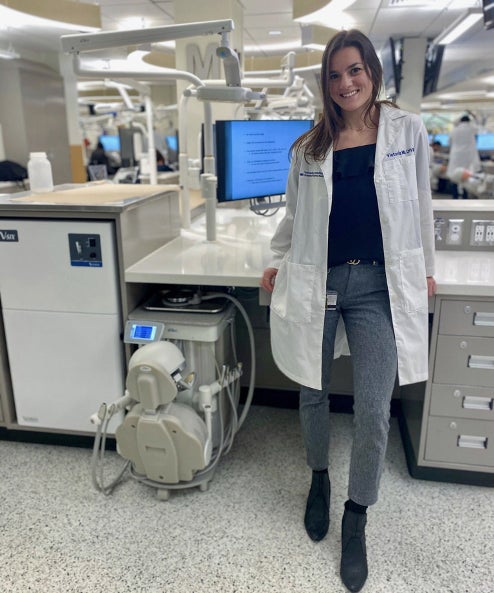
24
Buffalo, NY
Refinery29: When did you hear you’d be able to receive the COVID vaccine?
Victoria DiVillio: “We were informed by our clinic director on 5th January that vaccinations became available in Erie County to dentists, dental office staff and providers who regularly see patients. Because dental students will be in the clinic assisting and providing direct patient care, I qualified for the 1A phase and was able to get vaccinated.
“I was super excited! The minute after we received the email, I signed up to get my vaccination the next morning. I knew that after I received the vaccination, I would be more comfortable around patients in the clinic and just people in general. It is safe, effective, and will protect those around me so there was no reason to be apprehensive.”
What did it feel like?
“It was so quick. It felt like a tiny pinch and then it was over within seconds, just like any other vaccine. We had to sit in a waiting area to be monitored for 15 minutes afterwards for any adverse reactions.
“The same night I started to feel some serious arm pain and the next day I honestly could not lift my arm probably past 30 degrees. The pain, for the most part, subsided after about 24 hours. No fever, chill or nausea, fortunately.
“The side effects of my second dose have been much worse than the first, which I was warned was going to happen. I started to have symptoms seven hours in, and had a mild fever of 100, was very flush, and had a headache. Twelve hours in I had a fever of 101.5, a severe headache, body aches, chills, and fatigue. I’ve been sleeping it off and I feel a lot better now! The side effects feel like a mild 24-hour flu, but I’m still very thankful for being able to get the vaccine!”
Is there anything you’d want our readers to take away from your experience?
“For those who are hesitant about getting the vaccine due to a fear of side effects or a “rushed vaccine development,” seek out the right, fact-based information rather than posts on social media. Remember that COVID is still a major threat. Focus on the bigger picture, in that getting vaccinated will promote herd immunity and benefit society as a whole.”
Photo: Courtesy of Victoria DiVilio.
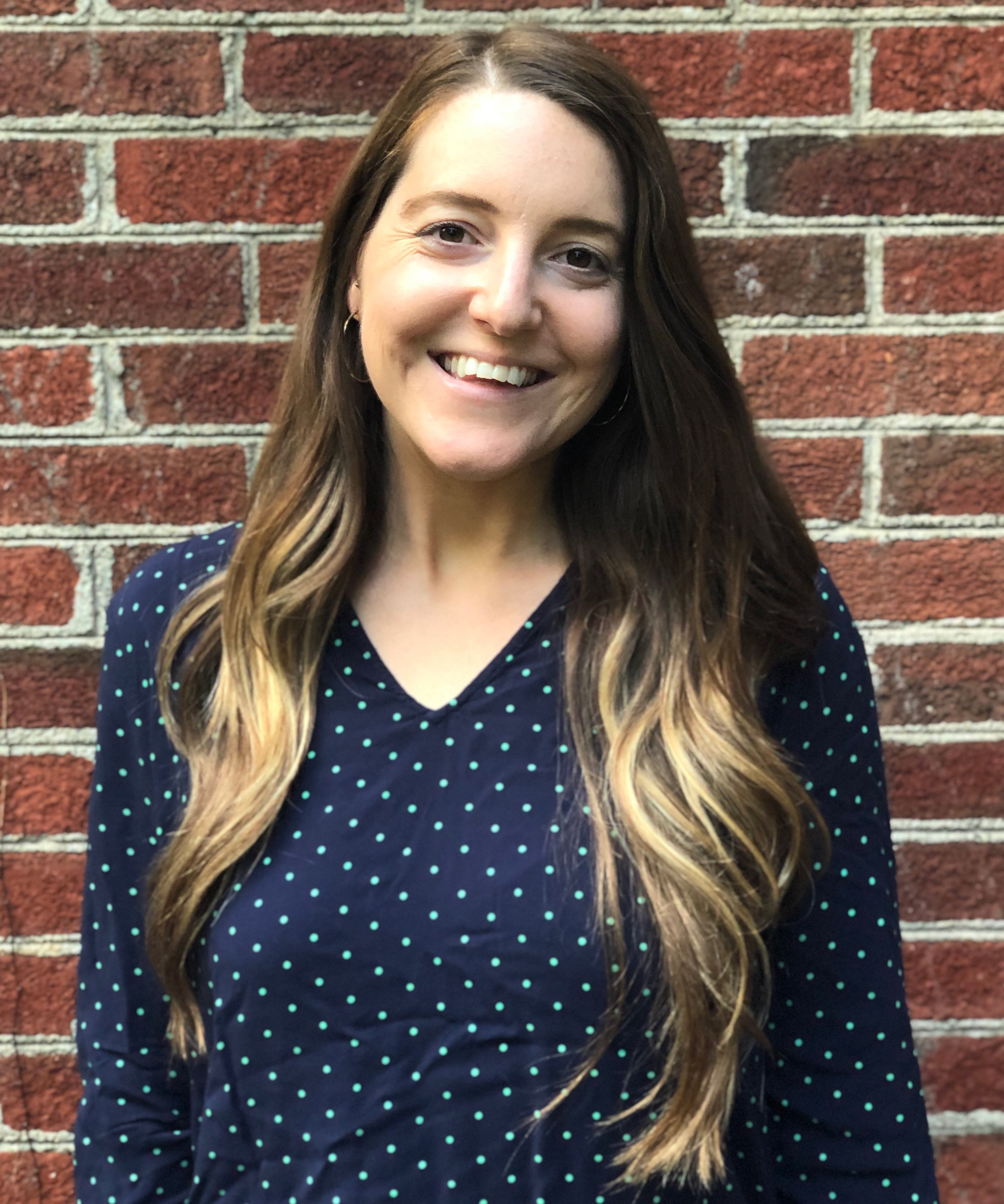
29
Lynchburg, VA
Refinery29: When did you hear you’d be able to receive the COVID vaccine?
Geralyn Fortney: “I had a friend who is an audiologist locally and she asked if I was eligible as a licensed counsellor. I called our local vaccine scheduling line and they said yes! I was excited. I got COVID from work in October, which has been a fear of mine throughout the pandemic.”
What was the process of receiving it like?
“I received it at a local hospital in a conference room. It was administered by a doctor. It hurt less than my recent flu shot. I got the vaccine on a Monday at 5.30pm and started feeling symptoms at 11am on Tuesday. I had a high temp (no fever, 99.4), body aches, chills, headache, congestion, and extreme pain at the injection site. It was all gone by Wednesday morning.
“I got the second vaccine exactly three weeks after the first. I was worried about having severe symptoms because I had three friends have to call out of work the day after the second vaccine. I felt slight muscle soreness, but had zero physical symptoms besides that! I had more severe symptoms after the first vaccine than people I know.”
Is there anything you’d want our readers to take away from your experience?
“Many of my friends and colleagues have experienced symptoms following at least one of the doses, but they tend to go away within 24 hours! I’m extremely grateful to have been able to receive the vaccine.”
(Fortney is the sister of a staff writer at Refinery29.)Photo: Courtesy of Geralyn Gulino.
Like what you see? How about some more R29 goodness, right here?
Are COVID-19 Vaccine Cards The Latest Scammer Con?